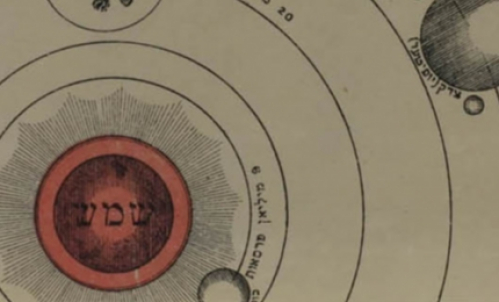Sovietization in the Pale: The Bolshevik Experiment in Minsk, the Jerusalem of Belorussia
When describing Minsk in 1928, the Yiddish writer and journalist I. J. Singer wrote, "Everyone agrees that Minsk is a happy, lively city. Still evident is the charm typical of Lithuanian Jewish cities near the border, where ideas and smuggling, religiosity and heresy, modesty and dissoluteness, antiquity and modernity are compressed together in the grubby alleys and houses, and fill the city with life, dynamism, and hope. Here, one is still a little provincial, a tad old-fashioned, and therefore more believing."
As Elissa Bemporad’s book on the Bolshevik experiment in Minsk shows, the acculturation process into the Soviet system as experienced by the Jewish population was made of intricacies and inconsistencies, marked by enthusiasm for communist ideology, ambition to succeed, quest for employment, anxiety to fit in, necessity to survive, fear of marginalization and punishment, or/and pressures from family, friends, and fellow city-residents. While adapting to the new system, most ordinary Jewish men and women, whether former Bundists, Yiddish activists, political Zionists, workers, students, or religious-practicing Jews, remained committed to some expressions of Jewishness, and attempted to walk the fine line between accepted Soviet behavior and social norms and expressions of Jewish particularity. In Minsk, as in so many other places in the former Pale of Settlement, the path to sovietization did not involve a complete denial or departure from Jewishness, but allowed for the possibility of retaining aspects of Jewish identity that might have otherwise been cast off in the acculturation process. Here, acting as a Jew and a Bolshevik could sometimes coexist, intersect, and harmoniously meet, as the making of Soviet Jews resulted not only from the violent changes introduced by the Communist project, but also by the largely overlooked, lines of continuity with pre-revolutionary forms of Jewish life.
About the Speaker
Elissa Bemporad holds the Jerry and William Ungar Chair in Eastern European Jewish history, and is assistant professor of History at Queens College, City University of New York. Dr. Bemporad was trained in Russian studies at the University of Bologna, and in Jewish studies at the Jewish Theological Seminary of America. She received her PhD in history from Stanford University. Becoming Soviet Jews: The Bolshevik Experiment in Minsk has been awarded the Fraenkel Prize in Contemporary history as an outstanding work in twentieth-century history.



